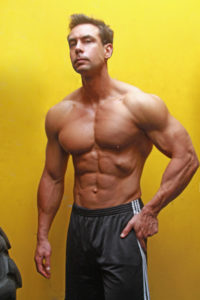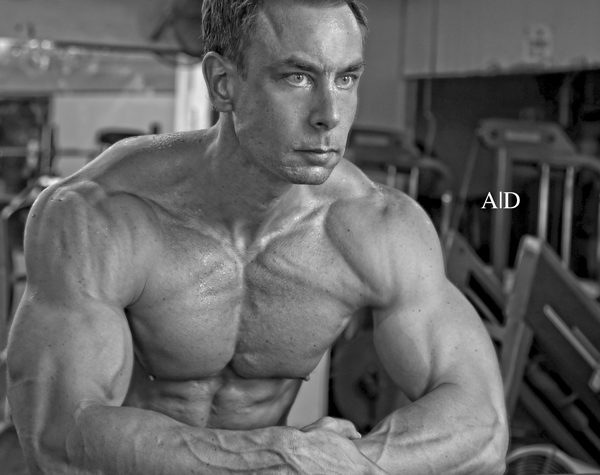
The idea of training on an empty stomach holds a certain allure as it seems logical. Since there is no food aka energy in the stomach, the body must revert to other energy sources mainly burning unsightly body fat. So starve to get lean?
There are several things to consider. First and foremost, you do burn a higher when doing cardio on an empty stomach. But does this qualify as making it worth you while
Performance considerations
When training on an empty stomach, the overall performance tends to be lower therefore overall calorie burn is lower. As an example:
lets assume someone trains fasted and burns 200 calories out which 50 % or half are coming from fat deposits.
So if we divide 100 that comes to about 11 grams of fat or one table spoon…. Sobering, isn’t it?
The other person trained fueled and burned 300 calories but since he ate only 40% of the total calories burned are from fat. So Fasted for the win? Not quite.
1. Overall calories burned matter much more than percentages
2. 40% of 300 Calories is still 120% which is a higher total that 100.
Additionally, the person was able to exercise at a higher intensity so the EPOC is most likely higher.
Calories burned post exercise
Remember the after burn effect? Turns out there is some truth to it, namely EPOC which are calories that are expanded post exercise. Excess post-exercise oxygen consumption (EPOC, informally called after burn) occurs when the rate of oxygen intake is increased following strenuous activity such as training, shoveling snow, chopping wood etc
The more intense your workout is, the higher the EPOC rate which can add up to several hundred calories of the 48 hours post workout. Speaking very generally, LISS or low intensity steady state cardio provides very little EPOC, HIIT high intensity training meaning sprints, sled pushing or a fast paced weight training session will cause a much higher EPOC. It is much easier to train harder when properly fueled, so that could be seen as an argument to train with some food
What about recovery?
When it comes to recovery, people usually talk about the anabloc window which is magical time from when you have to replenish glycogen ( carbohydrates) and amino acids (protein) or your muscles will shrink and you might die. Usually the window given is about 20 minutes or else.
But is that really true? Consider the following: no matter how easily digestible your meal is, it will take about 30-45 minutes until it is in your blood stream therefore your pre workout meal is really your post workout meal.
The food that is in your bloodstream will prevent muscle breakdown during the workout and start the rebuilding right thereafter. But what if you simply can not train with some food in your stomach?
Then start sipping a dextrose/ whey mix once you are done. But relax! The anabolic window is about three hours big so as long as you eat within the hour or even 90 minutes, you will be just fine!
How do you set up pre and post workout nutrition?
So let’s cover pre-workout nutrition first. Pre-workout nutrition breaks down into two components: 1. Carbohydrates for energy, and 2. Protein to prevent muscle breakdown. Both nutrients take about 60-90 minutes to get into the blood stream, so it is advisable to eat before training. If you train very early in the morning, at least have a protein shake on the way to the gym.
What about post-workout nutrition? For the longest time, gym goers have been told that they need to take advantage of the “anabolic window” which closes within 30 minutes after your workout (“Bro, you better chug that protein shake within 7 seconds after the last set or else you’re not gonna grow”). First of all, this is not accurate as the anabolic window stays open for up to three hours after your workout. Secondly, the need for “insert supplement/nutrition here” intake immediately after the workout is not as necessary; the amount of glycogen used during a workout is a lot less than most of us think.
Let’s dive a bit deeper into the issue at hand. The best way to find out what nutrition you need for your workouts is to ask yourself: What are you training for? 95% of the people that we encounter at the gym are there to look better, to feel more confident in their body. Other goals include to perform better, to strengthen a previously injured muscle group, etc.
If you’re working on improving your looks (and especially if you are not training again that day), you do not need to replenish glycogen since depletion levels are only around 30% after a typical weight training session. What we need to focus on is creating a caloric deficit, which also means carb heavy protein shakes post-workout is unnecessary. A performance athlete needs to follow different parameters.
A few more pointers:
1. Your pre-workout meal is the first line of defense for recovery. Make sure to get 30-50 grams of carbohydrates and 30 grams of protein within 90 minutes before your workout.
2. You do not need massive amounts of carbohydrates post-workout unless you are training again that same day or are an endurance athlete.
3. BCAA’s are a rip off and not needed,
4. 10-20 grams of whey protein are fine as your post-workout shake.
5. Instead of focusing on protein intake just pre- and post-workout, focus more on your overall protein consumption throughout the day. In other words, do not be the guy that eats pizza for lunch but then has a 20$ protein shake!
6. Creatine is the only supplement that makes sense as a post-workout shake nutrient, whether you are cutting or bulking!
7. Caffeine can be used to improve performance, alertness and hihger focus! (think 2mg per lbs.. of body weight), but do so only twice a week.
Conclusion
While I do not think that training fasted is the greatest idea, it is also not a deal breaker. You can by personal preference but if you train fasted, make sure to start adding liquid protein and carbs right after the workout in order to speed up fat loss and muscle gain!

Rethinking my fish o we protein powder consumption change … ?
Awesome information. Thanks Maik
thx Bill for always being supportive!
By pure coincidence today i worked out fasted(never happened before). The intensity deffinetly was cut by at least a third and i had to take bigger breaks between sets. Need food!
like I said, not a fan!
I usually try to consume a rice, chicken, vegetable meal post workout. I find glutamine helpful myself, any thoughts Maik?
not a huge fan https://youtu.be/18woGlrPvcA